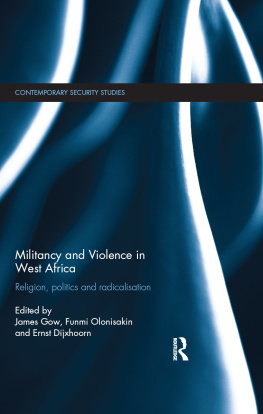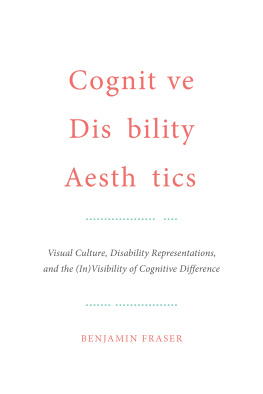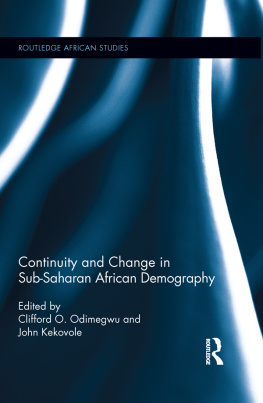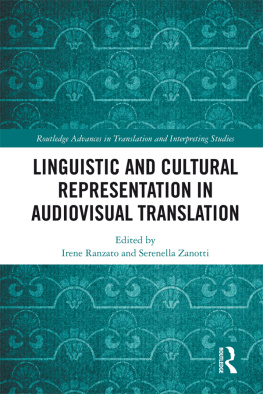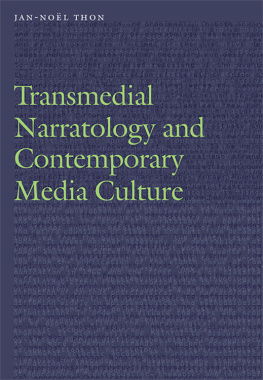Modern Representations of Sub-Saharan Africa
This book examines how representations of Africa in the Anglophone West have changed in the post-imperial age.
The period since the Second World War has seen profound changes in sub-Saharan Africa, notably because of decolonization, the creation of independent nation-states, and the transformation of the relationships with the West. Using a range of case studies from news media, maps, popular culture, film, and TV, the contributions assess how narratives and counter-narratives have developed and been received by their audiences in light of these changes.
Examining the overlapping areas between media representations and historical events, this book will be of interest to students and scholars of African studies and media and cultural studies.
Lori Maguire is a professor at the University of Reims, France.
Susan Ball is a senior lecturer at the University of Paris 8, France.
Sbastien Lefait is a professor at Aix Marseille University, France.
Routledge Contemporary Africa
Nature, Environment and Activism in Nigerian Literature
Sule E. Egya
Corporate Social Responsibility and Law in Africa
Theories, Issues and Practices
Nojeem A. Amodu
Greening Industrialization in Sub-Saharan Africa
Ralph Luken and Edward Clarence-Smith
Health and Care in Old Age in Africa
Edited by Pranitha Maharaj
Rethinking African Agriculture
How Non-Agrarian Factors Shape Peasant Livelihoods
Edited by Goran Hyden, Kazuhiko Sugimura and Tadasu Tsuruta
Toward an Animist Reading of Postcolonial Trauma Literature
Reading Beyond the Single Subject
Jay Rajiva
Development-induced Displacement and Human Rights in Africa
The Kampala Convention
Romola Adeola
Death and the Textile Industry in Nigeria
Elisha P. Renne
Modern Representations of Sub-Saharan Africa
Edited by Lori Maguire, Susan Ball and Sbastien Lefait
For more information about this series, please visit: www.routledge.com/Routledge-Contemporary-Africa/book-series/RCAFR
Modern Representations of Sub-Saharan Africa
Edited by Lori Maguire, Susan Ball and Sbastien Lefait
First published 2021
by Routledge
2 Park Square, Milton Park, Abingdon, Oxon OX14 4RN
and by Routledge
52 Vanderbilt Avenue, New York, NY 10017
Routledge is an imprint of the Taylor & Francis Group, an informa business
2021 selection and editorial matter, Lori Maguire, Susan Ball and Sbastien Lefait; individual chapters, the contributors
The right of Lori Maguire, Susan Ball and Sbastien Lefait to be identified as the authors of the editorial material, and of the authors for their individual chapters, has been asserted in accordance with sections 77 and 78 of the Copyright, Designs and Patents Act 1988.
All rights reserved. No part of this book may be reprinted or reproduced or utilised in any form or by any electronic, mechanical, or other means, now known or hereafter invented, including photocopying and recording, or in any information storage or retrieval system, without permission in writing from the publishers.
Trademark notice: Product or corporate names may be trademarks or registered trademarks, and are used only for identification and explanation without intent to infringe.
British Library Cataloguing-in-Publication Data
A catalogue record for this book is available from the British Library
Library of Congress Cataloging-in-Publication Data
A catalog record for this book has been requested
ISBN: 978-0-367-34312-5 (hbk)
ISBN: 978-0-429-34030-7 (ebk)
Typeset in Bembo
by Apex CoVantage, LLC
Contents
Susan Ball, Sbastien Lefait and Lori Maguire
PART 1
Representing sub-Saharan Africa before its decolonization
Gerard McCann
Lori Maguire
PART 2
Representing sub-Saharan Africa in the age of decolonization and independence
Olivier Esteves
Christopher Griffin
Alexis Pichard
PART 3
Representing sub-Saharan Africa in academic disciplines
Christine Ayorinde
Susan Ball
PART 4
Representing sub-Saharan Africa today
Yemisi Akinbobola
Phillip Drummond
Sbastien Lefait
Sbastien Lefait, Lori Maguire and Susan Ball
Guide
Yemisi Akinbobola holds a PhD in media and cultural studies from Birmingham City University where she is a senior lecturer and strategic lead for internationalization of research in the Faculty of Art, Design and Media. Her research interest is in African feminism, journalism, and media entrepreneurship. Joint winner of the CNN African Journalist Award 2016 (Sports Reporting), Yemisi ran her news website IQ4News between 201014. Her media work is Africa focused, covering stories from rape culture in Nigeria to an investigative and data story on the trafficking of young West African football hopefuls by fake agents. She has freelanced for publications, including the UN Africa Renewal magazine, and has several years experience in communication management for charities. She is co-founder of African Women in Media (AWiM). AWiMs vision is that one day African women will have equal access to representation in media.
Christine Ayorinde is an independent scholar who received her PhD in history from the University of Birmingham in 2000. She was awarded a three-year postgraduate studentship from the Arts and Humanities Research Board of the British Academy and held a postdoctoral research fellowship with the UNESCO Nigerian Hinterland Project at York University, Canada. She has written extensively on Cuba and the African diaspora. Publications include the book Afro-Cuban Religiosity, Revolution, and National Identity, University Press of Florida (2004), as well as a number of book chapters and translations.
Susan Ball is a senior lecturer in contemporary British civilization and a member of the research group TransCrit at the University Paris 8. She previously worked as a research consultant in land use planning. She has published in international journals on migration and divided societies, visual methodologies, and land and property development. Her ongoing research addresses space and social relations as material components, and in representations, of small cities.
Phillip Drummond is an independent scholar based in London, UK. He was an exhibitor of independent and avant-garde film as an undergraduate at Oxford in the 1960s, going on to become a pioneer of UK Film and Media Studies. In 1980 he founded the University of Londons first masters degree in film and TV studies, and the UKs first MA in media education. He is the co-editor, with Sbastien Lefait, of Film Journal. His current research focusses on cinematic representations of race, the Mediterranean, and the Scottish islands. The founder and sponsor of the Annual London Film & Media Conference, he edited the conference ebooks published by The London Symposium, comprising 240 essays from around the world (201317).
Olivier Esteves


